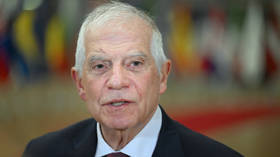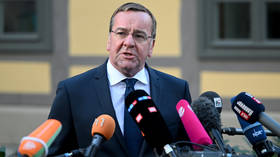Russian influence causing dilemma in Africa’s Sahel – EU foreign policy chief

European Union foreign policy chief Josep Borrell has blamed Russia for the bloc’s declining influence in the West African Sahel region, where some of its member states have been forced to withdraw military missions in recent years.
The diplomat told reporters on Wednesday, ahead of a defense meeting in Brussels, that the EU is in a dilemma over its remaining presence in the Sahel region, particularly Mali, where he claims Moscow’s influence has increased.
“We still have a couple of missions in Mali which have not been withdrawn, but they are not connected to the ordinary work since we do not want to cooperate with Wagner, now called ‘Africa Corps,’” Borrell said, referring to an alleged Russian military contingent that was reportedly deployed to the Sahel last week.
Moscow’s relations with military-ruled Mali, Burkina Faso, and recently Niger have been in the spotlight, stirring dissatisfaction in the EU since French troops were booted out of all three African nations.
The EU and some of its Western allies have previously accused Russia of pursuing a predatory agenda in Africa, with German Defense Minister Boris Pistorius declaring last year that the West was witnessing a geopolitical reversal in the region, particularly in the Sahel.
Russia has rejected the allegations, describing them as a neo-colonial approach to African cooperation by Western countries.
The new rulers of Mali, Burkina Faso, and Niger have cited their civilian governments’ failures to combat decade-long jihadist insurgencies despite foreign military presence as reasons for seizing power through coups. All three former French colonies severed military ties with France, citing meddling and aggression, and have instead turned to Russia as an economic and security partner.
While the EU had already halted part of its training mission in Mali (EUTM) in 2022, Niger’s coup leaders, who have been in power since last July, have also revoked two military partnership missions with the bloc.
On Wednesday, Borrell said Russia’s “very strong” influence in Ouagadougou, Bamako, and Niamey “creates a new geopolitical configuration” in the Sahel.
“France has had to leave; we have left our military mission – an incipient military mission – in Niger. We have now been invited to abandon Niger with our civilian mission,” he said, adding that EU member states “will have to decide if they want to stay” and extend Mali’s EUTM, which is set to expire in May.
While Western countries blame Moscow for their setbacks in the region, some African leaders, including Rwandan President Paul Kagame, have stated that Russia, like any other country, has the right to be present anywhere on the continent. Burkina Faso’s interim leader, Ibrahim Traore, has also hailed Moscow as a strategic ally for his country. Niger’s coup leaders have agreed to expand cooperation with Russia after repeatedly stating that Niamey would only work with partners who respect its sovereignty.













